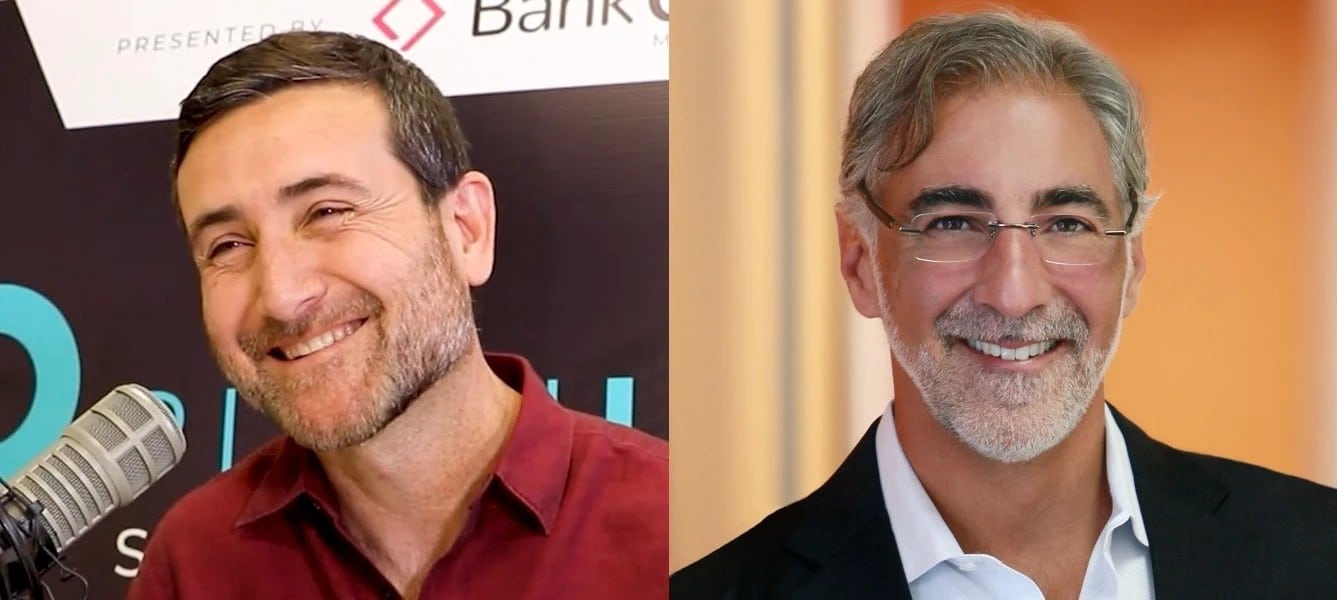The Long Game of Building and Investing in Early Stage Growth Companies
This week’s guest is Steve MacDonald. He started without money or connections but found a way to build a startup to over $100M in revenue and a 9 figure exit. Now he’s an investor himself having personally invested in over 120 companies and counting. In this interview we talk about what it takes to be a successful company builder and then a successful angel investor. Steve breaks down how founders should approach capital raising and he describes what he will be looking for with his new investment firm, MacDonald Ventures.
Full episode on Youtube …or audio only, Spotify or Podbean.
Allen finds Steve in Aspen, CO getting a break from the Florida heat and humidity.
As an entrepreneur, better a maverick or maven? Steve says knowledge (maven) is power, but not without action. Steve will take a maverick over a mavin every time.
To be a successful entrepreneur, you have to be great at a lot of little things, not just a specialist at one thing.
How does an entrepreneur balance being an independent-thinking maverick with also being a team-player?
Steve says a founder building a team or raising capital must be flexible and open-minded.
Steve sold his company in 2017 with a 44x return on investment to his investors. He’s had several other startups with successful exits prior and along the way. Prior, he worked for a Fortune 500 company at which he rose the ranks.
Steve has personally invested in over 120 early stage companies. Steve discusses the importance of ‘diversified portfolio’ approach to early stage angel investing.
Steve talks about what a ‘syndicate lead’ investor – and strongly recommends that approach to new investors.
New investors typically do not have exposure to enough opportunities (deals) to make a truly informed investment decision. Plugging into an existing funnel and co-investing alongside syndicate leads is the best strategy
Steve says that it typically takes 7-10 years before an early stage investor receives a return – and it’s typically not until year 7 that a company hits the acceleration phase.
And when a company starts to accelerate, the founders are tempted to cash out. But if they stick with it, the win to both them and their investors can be much larger.
Investors that understand and accept the long game are more relaxed, which is good for their co-investors and the entrepreneur.
Years 3-4 are often gut-check years, for the founders and for the investors – can we be patient and get to the acceleration phase?
Why tolerate the long game as an investor – because of the big home runs that can happen. But you need a portfolio, you don’t know which one(s) will breakout and which ones will fail.
McDonald Ventures: Steve discusses his new investment company and mission to find the world’s next phenomenal tech companies. The 5 attributes looking for in a founder: Realistic, Humility, Traction, Preparation, and Commitment.
Realistic – when a founder is unrealistic (on many things including valuation), it hurts their opportunity within the investment community – because investors talk.
First-time founders don’t always know how to ‘set themselves up for success’.
Why is humility important in a founder and how does it manifest?
What should founders think when they are being passed on for funding?
How much traction is needed to attract a professional investor?
Steve talks about how CEOs need to be focused on asking the right questions and setting the right metrics.
No matter how great the product, business, or team – you cannot be unprepared for an investor meeting.
Steve talks about the importance of commitment and perseverance – this is probably number one of all attributes.
Steve says being an entrepreneur is like “getting in the ring with Mike Tyson every day for 10 years.”
Steve talks about how he was not raised in wealth, just the opposite, and had no investor connections when he started. He describes how he did it – and it wasn’t asking people for money, and he was able to raise $5 million dollars.
Courting investors is a relationship building process and you shouldn’t behave as though you expect a check in the first meeting.
How to use the cascading ‘herd mentality’ approach to raising money.
The kind of businesses that MacDonald Ventures will typically be interested – business process automation will always be high on the list.
Steve explains why consumer product companies find it so hard to gain investment – and the Twitter origin story that few know.
Parting message from Steve – we are in difficult economic times right now but this is when great companies and great entrepreneurs shine through with perseverance and creativity.


